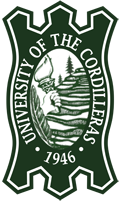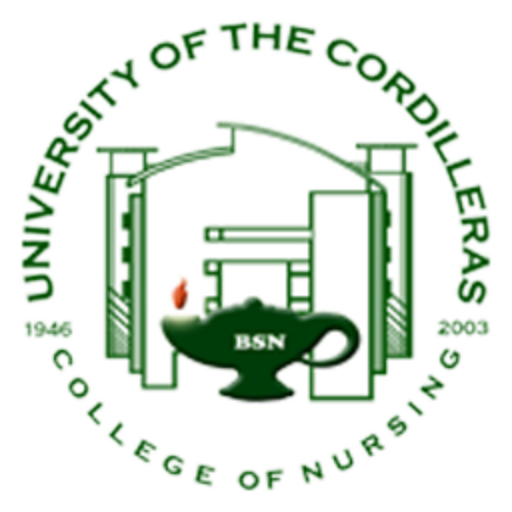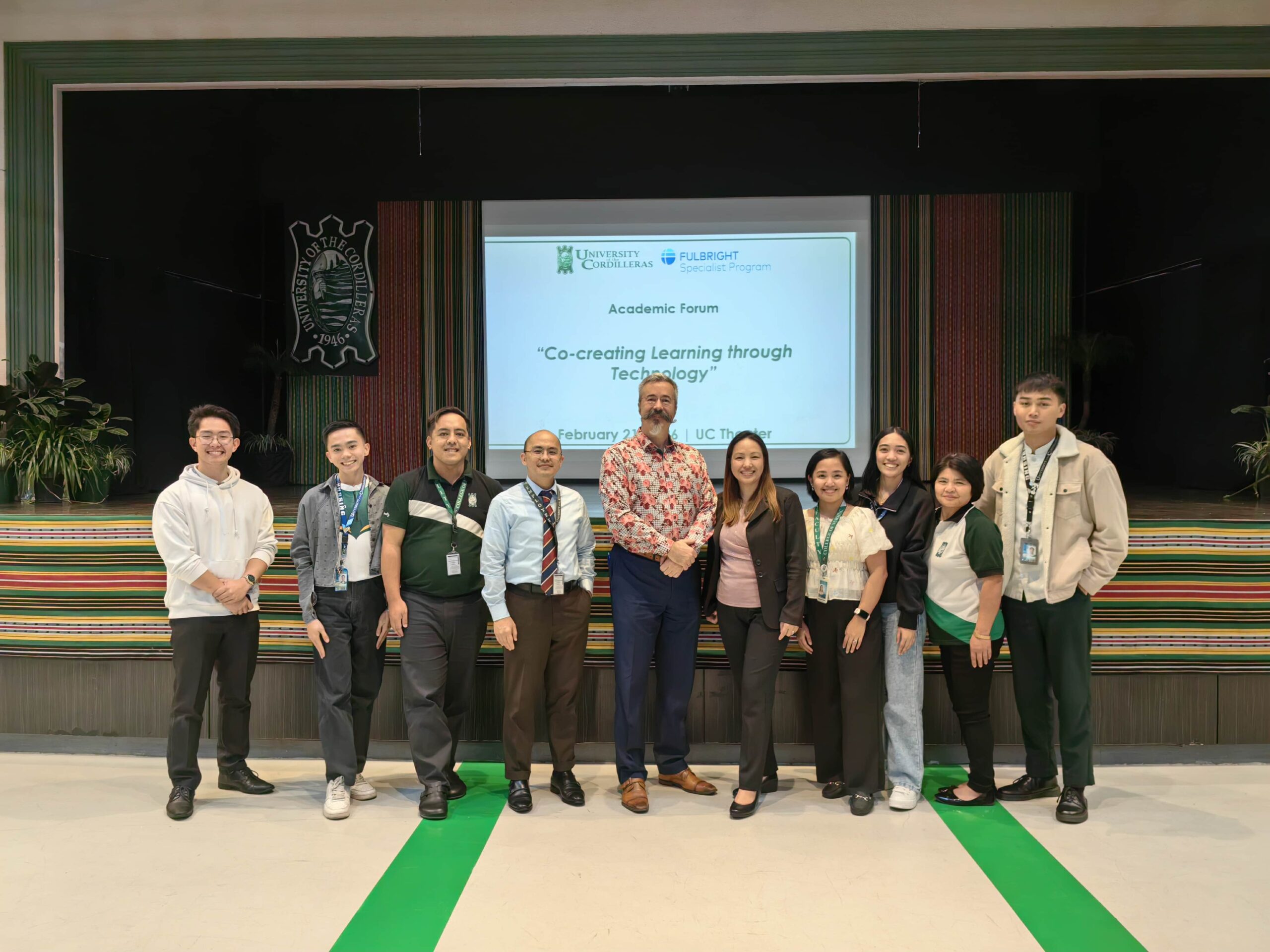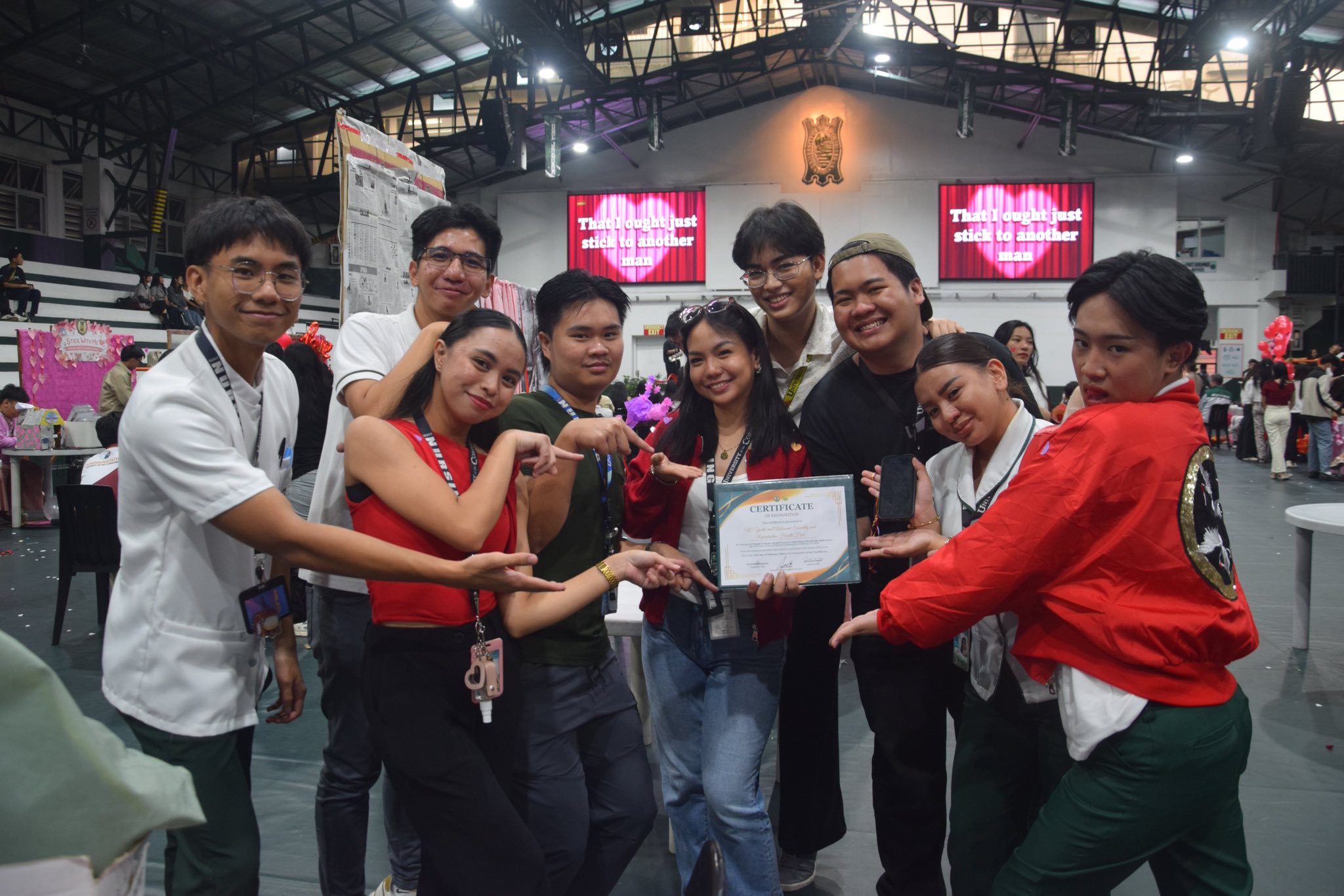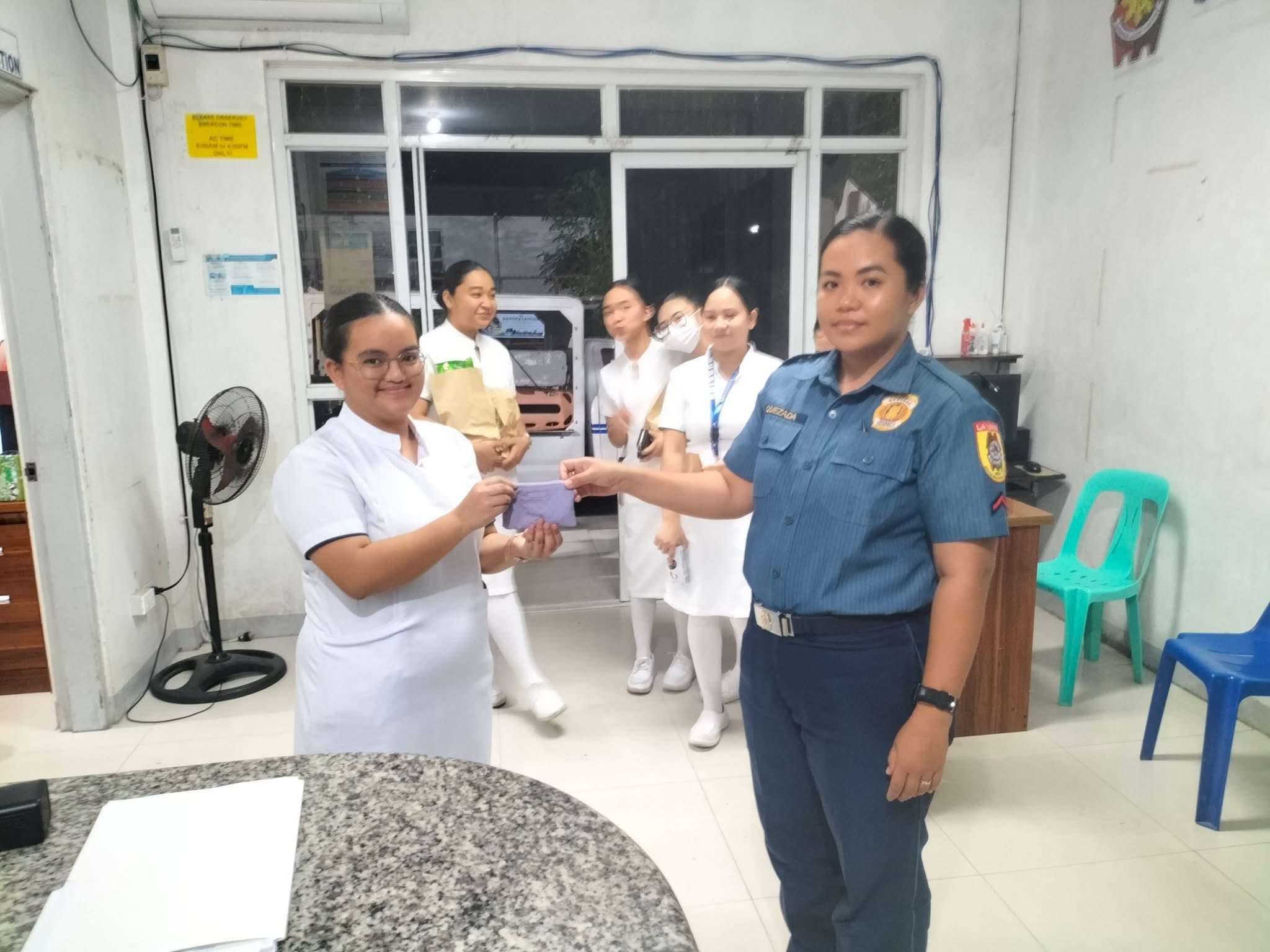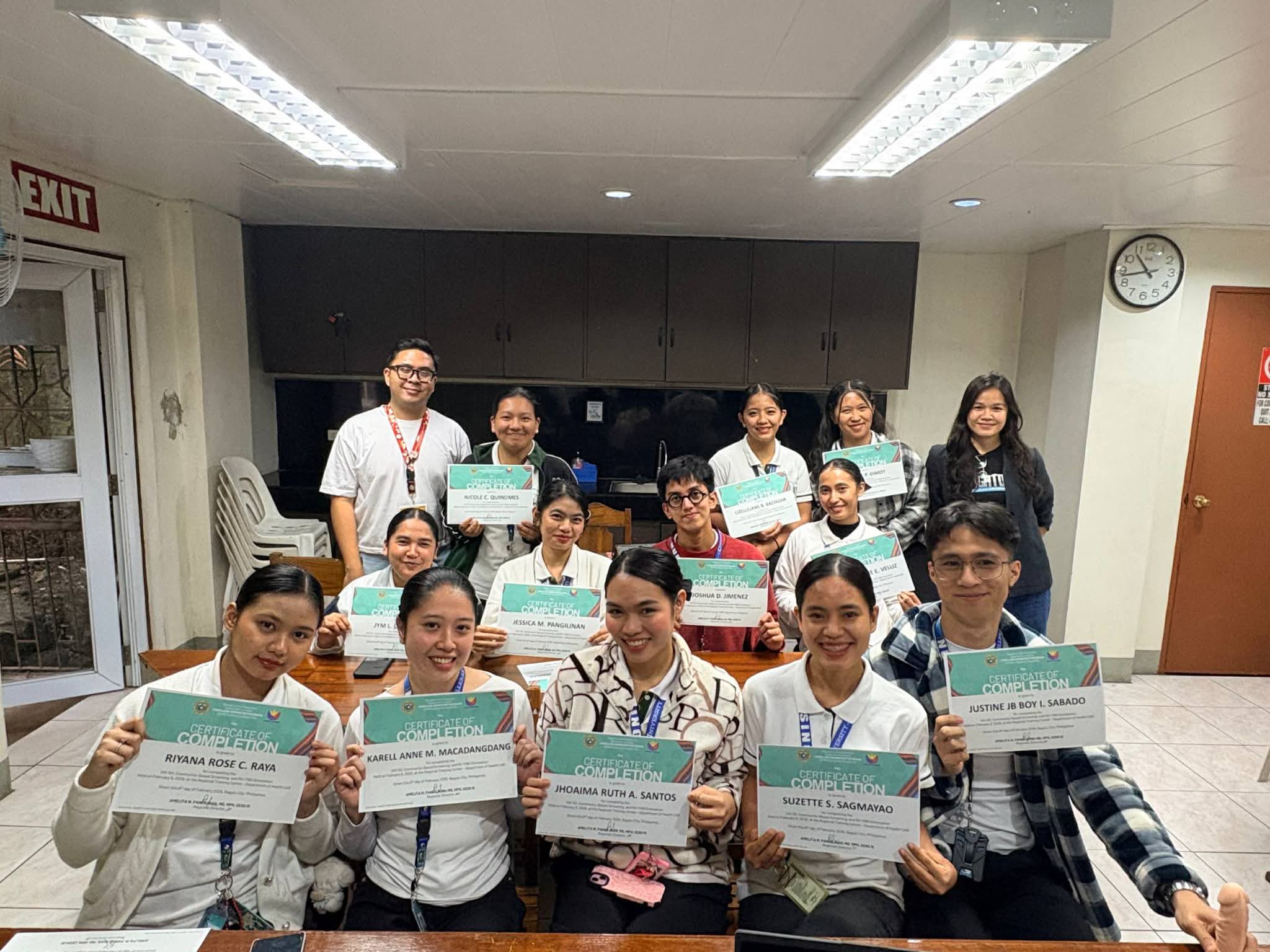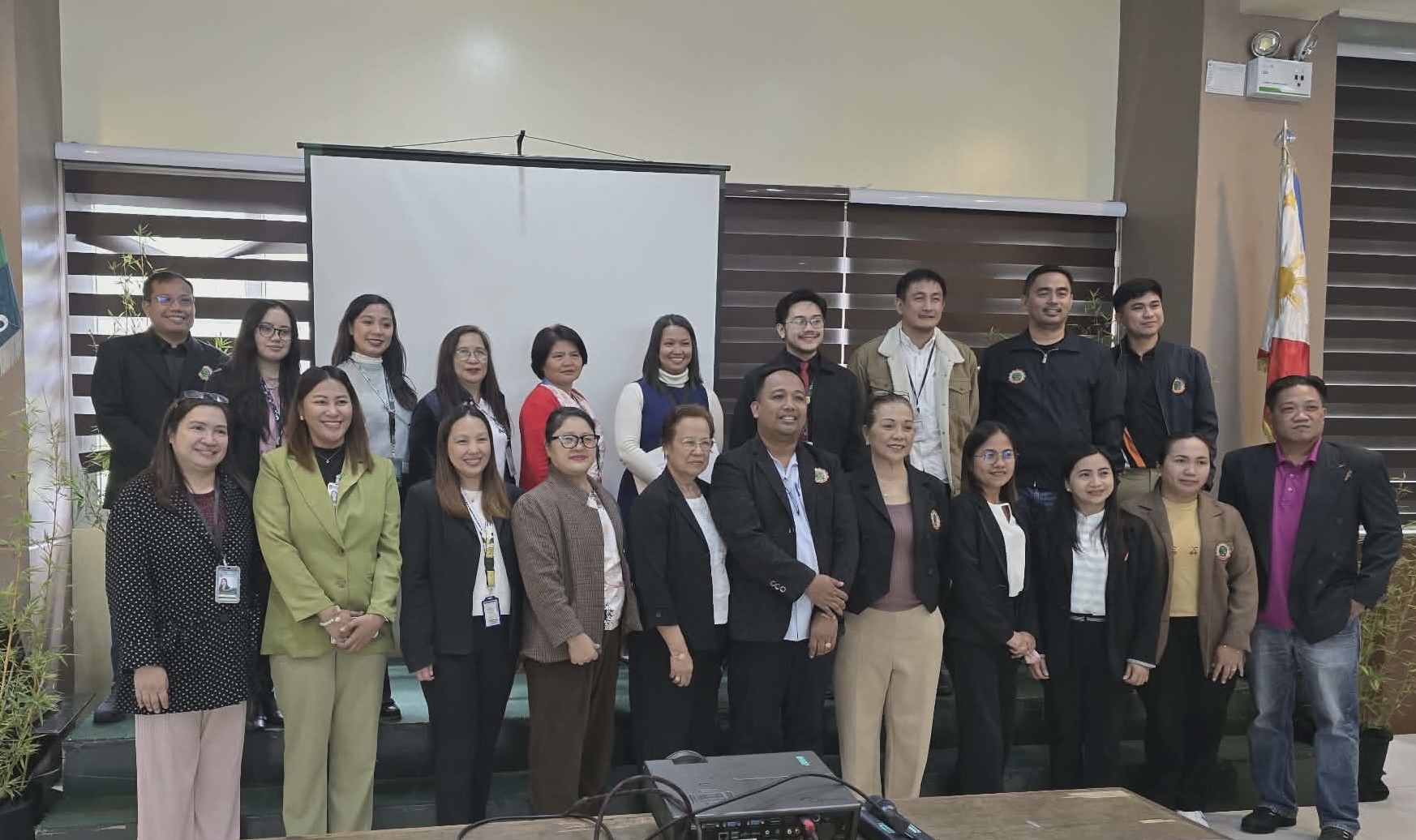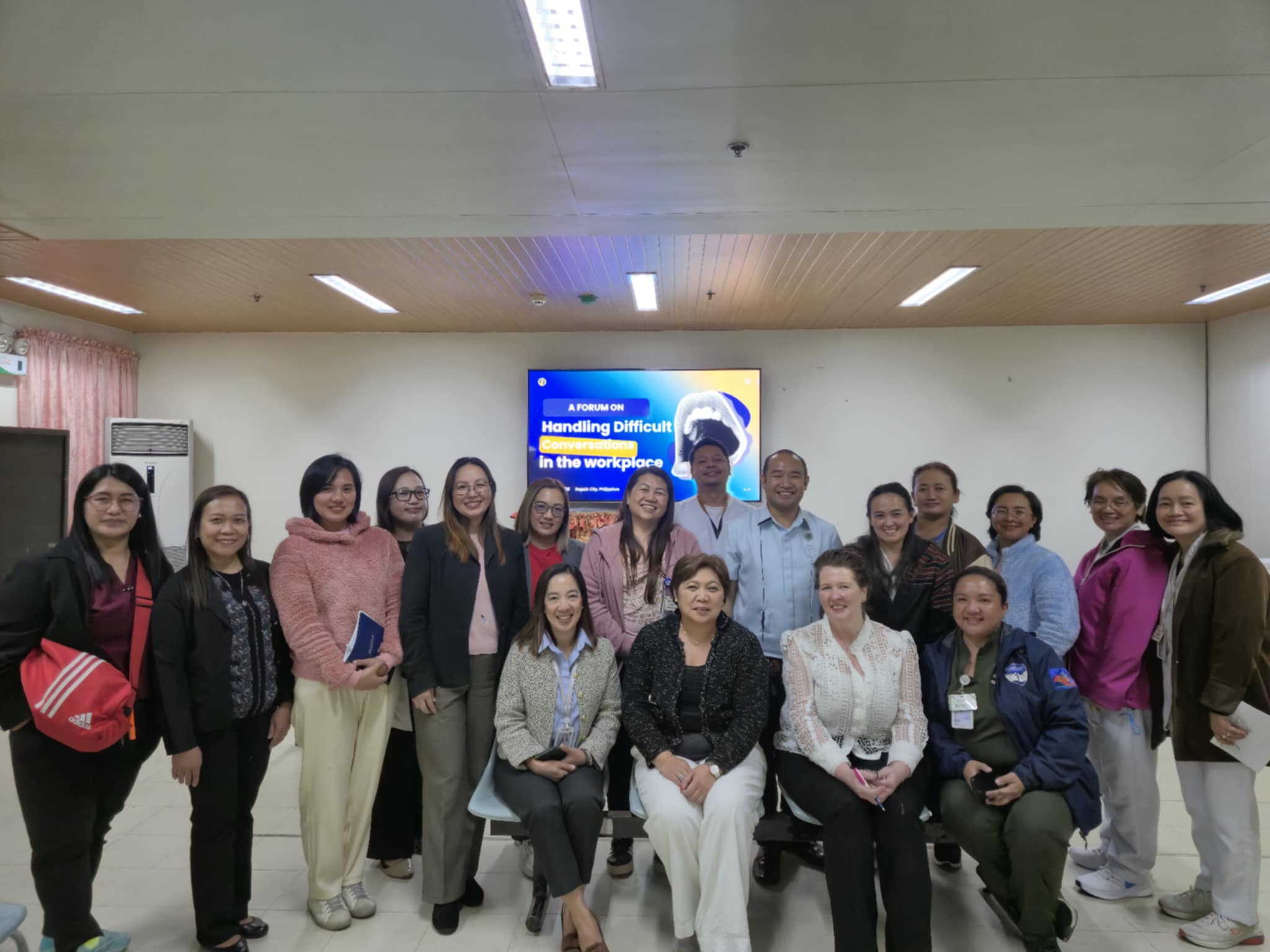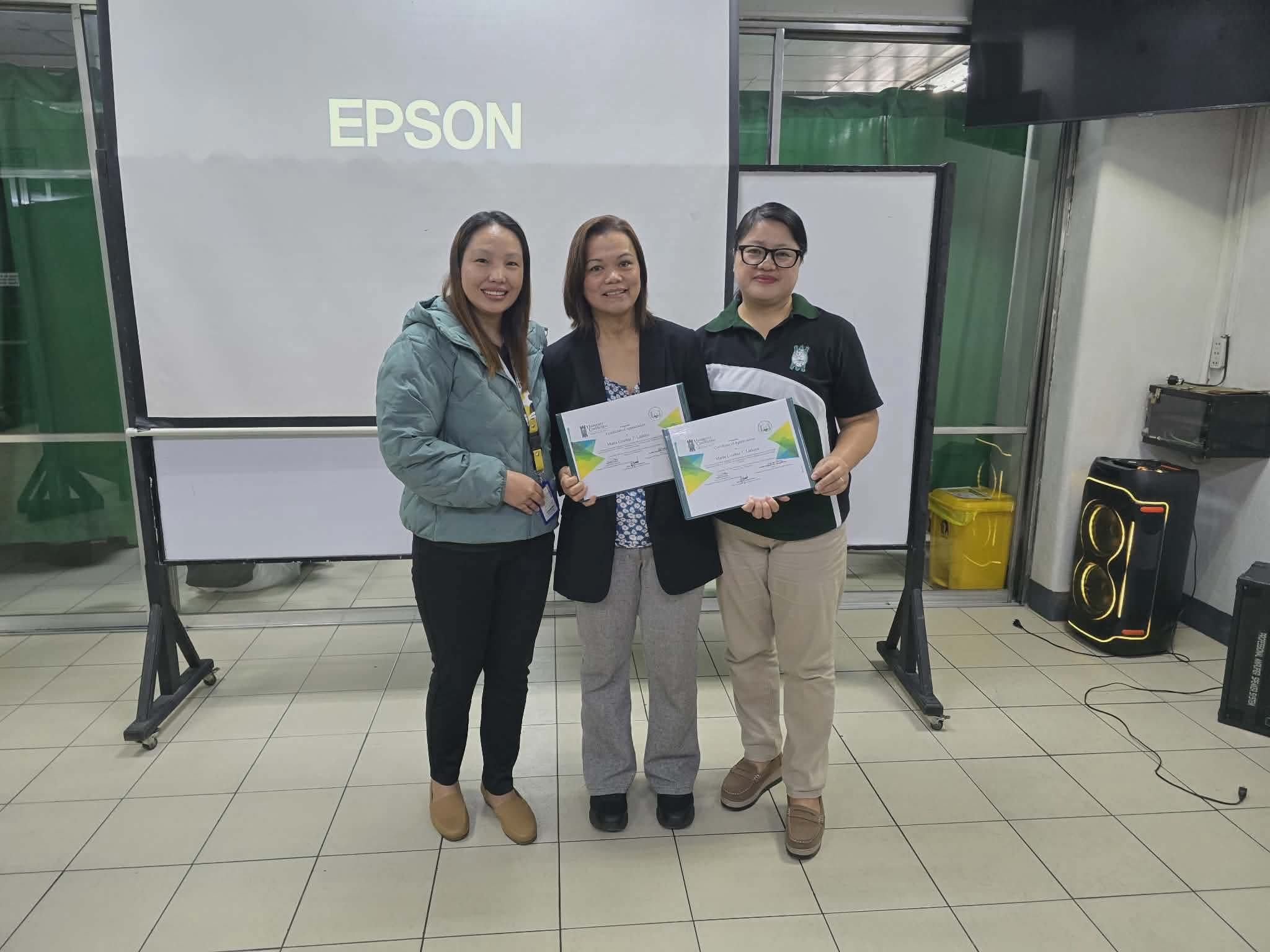Championing Student Research and Global Health Advocacy through Scholarly Engagement
Four students from the College of Nursing and Allied Health Sciences (CONAHS) of the University of the Cordilleras (UC) proudly presented their research papers at the 18th APRU Global Health Conference 2025, held from October 28 to 31, 2025, at the Universiti Malaya (UM) in Kuala Lumpur, Malaysia.
Hosted by the Department of Social and Preventive Medicine, Faculty of Medicine, the conference convened scholars, researchers, and professionals from across the Asia-Pacific region under the theme “Towards Planetary Health Equity: A Global Call for Shared Solutions.” The event underscored the urgent need for interdisciplinary and collaborative action to address the interlinked challenges of health, climate change, and social justice.
Key focus areas included Climate Change and Health, Environmental Sustainability and Public Health, Equitable Healthcare Systems, the One Health Approach, Technology and Innovation in Global Health, and Policy and Governance for Health Equity.
UC-CONAHS Student Presenters
Sean Dale M. Manaloto – “Quantitative Study of the Prevalence of Hepatitis B Among Garbage Collectors in Baguio City, Philippines”
Manaloto’s study investigated the occupational health risks faced by waste collectors in Baguio City, focusing on the prevalence of Hepatitis B infection among this vulnerable group. The findings emphasized the need for preventive health interventions, improved occupational safety protocols, and policy measures to safeguard informal sector workers.
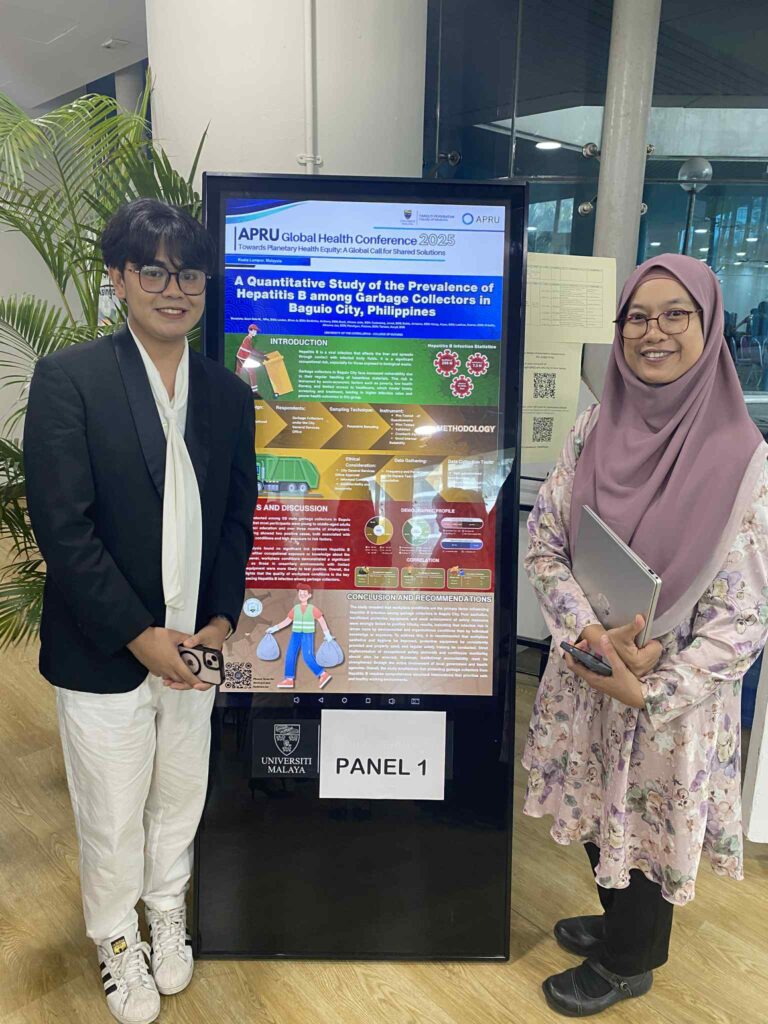
Neil Cyrus Gian B. Bangtuan – “Relationship of 3Qs to the Clinical Decision-Making of Fourth-Year Student Nurses in a Private Higher Education Institution in Baguio City”
Bangtuan’s research explored how knowledge, quality, and quick-thinking (3Qs) influence the clinical decision-making abilities of student nurses. His findings provided insight into how nursing education can enhance evidence-based practice, promote critical reasoning, and develop clinical competence among future healthcare professionals.
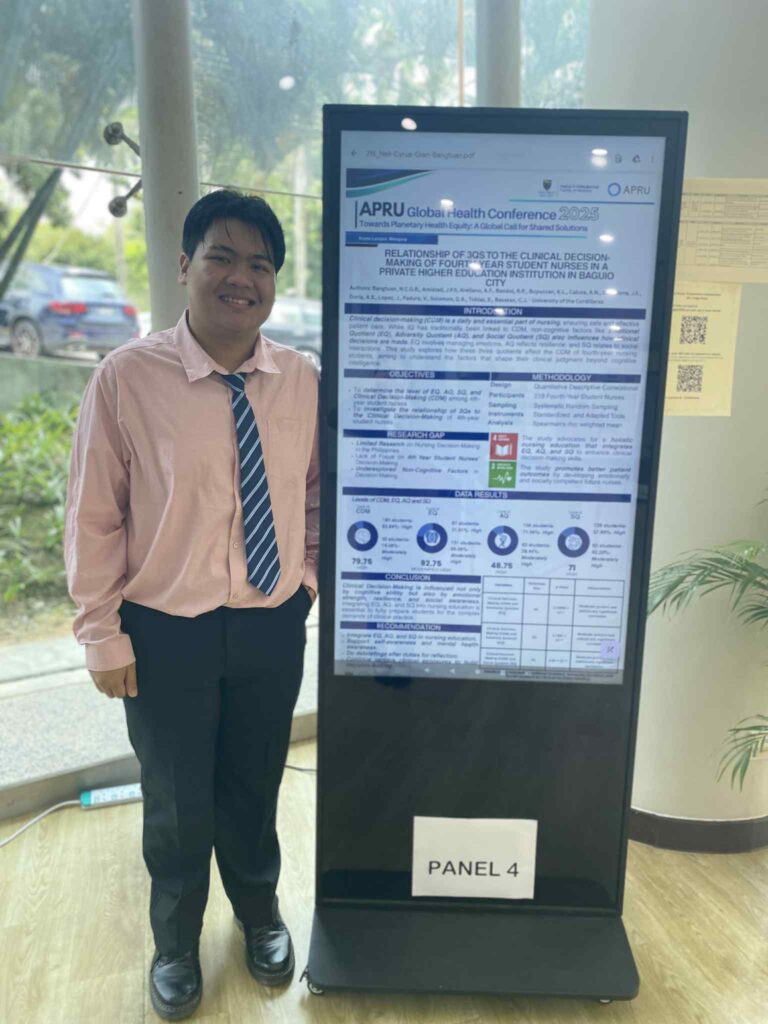
Marianne Formeloza – “Sacred Aging: Exploring the Lived Experiences of Elderly Catholic Nuns”
Using a qualitative approach, Formeloza examined the spiritual, emotional, and communal dimensions of agingamong elderly Catholic nuns. Her research revealed how faith, vocation, and community life contribute to the well-being and resilience of aging religious women, offering valuable implications for gerontological nursing and spiritual care.
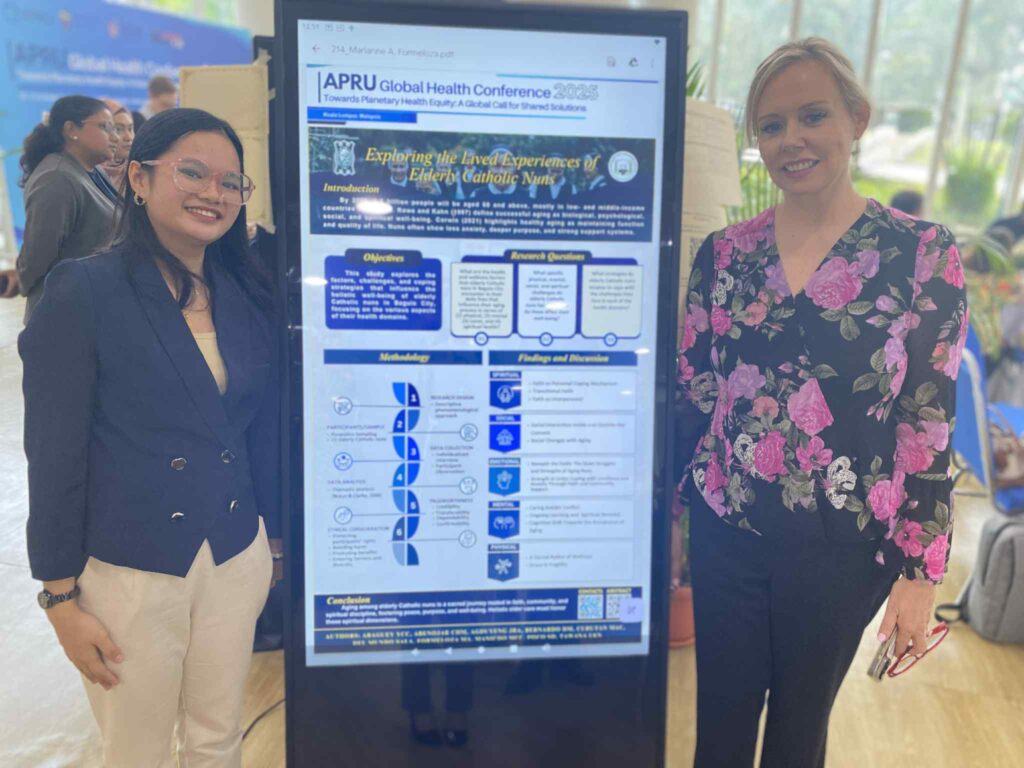
Julienne Formeloza – “Listening Beyond Words: A Phenomenological Study on Parenting a Child with Autism”
Formeloza’s phenomenological study delved into the lived experiences of parents raising children with autism. The research highlighted themes of empathy, resilience, acceptance, and transformative caregiving within Filipino families, contributing to a deeper understanding of family-centered care and inclusive health practices.
Global Exposure and Collaboration
Beyond presenting their papers, the UC-CONAHs delegates engaged in discussions on planetary health, artificial intelligence ethics, and the global challenges faced by healthcare workers. They exchanged ideas with peers and experts from across the Asia-Pacific, fostering academic collaboration and cultural understanding—key elements in shaping globally competent health professionals.
Their participation demonstrated UC-CONAHs’s commitment to nurturing student-led research that responds to pressing health and social concerns through a global and interdisciplinary lens. The students’ achievements underscore the College’s dedication to producing socially responsive, research-driven, and ethically grounded graduates who contribute to global health equity.
Sustainable Development Goals (SDGs) Covered
| SDG | Goal | Relevant Indicator(s) | Description of Contribution |
|---|---|---|---|
| SDG 3 | Good Health and Well-Being | 3.4.1 – Strengthening research and education in communicable and noncommunicable disease prevention | Studies on Hepatitis B, autism, and aging promote awareness and prevention of key health issues within and beyond the local context. |
| SDG 4 | Quality Education | 4.3.3 – Student participation in international research and academic exchange | Student researchers represented UC in a global forum, demonstrating academic excellence and fostering international engagement in health education. |
| SDG 10 | Reduced Inequalities | 10.2.1 – Empowering marginalized and vulnerable populations through research | Research on vulnerable groups—garbage collectors, the elderly, and families of children with autism—advances inclusion and health equity. |
| SDG 17 | Partnerships for the Goals | 17.16.1 – Strengthening global research and institutional partnerships | Participation in the APRU network reinforces international collaboration and shared commitment to planetary health equity. |
